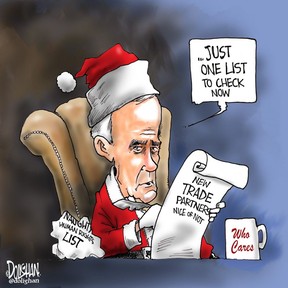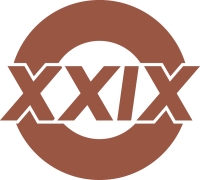Politics
Political Cartoon Sparks Debate on Free Speech and Satire

A recent political cartoon by Tim Dolighan, published on November 27, 2025, has ignited a heated discussion on the boundaries of free speech and satire in contemporary media. The cartoon, which critiques current political figures and events, has drawn diverse reactions from the public and experts alike, sparking debates across various platforms.
The cartoon portrays key political figures in a manner that some viewers consider humorous while others deem offensive. This duality has led to a significant response on social media, where users have taken to platforms to express their views, praising the cartoon for its boldness or condemning it for crossing ethical lines. Many commentators argue that such artistic expressions are pivotal to maintaining a healthy dialogue in a democratic society.
Public Reaction and Implications for Free Speech
The mixed public reaction highlights a growing concern regarding the limits of satire in political discourse. Critics of the cartoon assert that it perpetuates divisive narratives, potentially inciting hostility. Conversely, supporters emphasize the importance of artistic freedom, viewing satire as a vital tool for social commentary. “Satire has always played a crucial role in challenging authority and provoking thought,” stated a spokesperson from the Free Speech Coalition.
Further complicating the discussion is the role of social media platforms in moderating content. Recent changes in editorial standards have prompted some platforms to remove content deemed offensive, raising questions about censorship and its impact on artistic expression. This situation echoes broader conversations about the responsibilities of social media companies in regulating speech.
Looking Ahead: The Future of Political Satire
As the debate continues, the implications for political satire remain uncertain. Will the evolving landscape of media and public sentiment stifle creative expression, or will it encourage a new wave of thought-provoking commentary? The outcome may depend on how artists like Tim Dolighan navigate the fine line between humor and sensitivity.
Artistic expression, particularly in the realm of political commentary, serves as a reflection of society’s values and challenges. As discussions surrounding Dolighan’s cartoon unfold, they will likely shape the future of political satire, influencing both creators and audiences in the years to come.
-

 Politics3 weeks ago
Politics3 weeks agoSecwepemc First Nation Seeks Aboriginal Title Over Kamloops Area
-

 World4 months ago
World4 months agoScientists Unearth Ancient Antarctic Ice to Unlock Climate Secrets
-

 Entertainment5 months ago
Entertainment5 months agoTrump and McCormick to Announce $70 Billion Energy Investments
-

 Lifestyle4 months ago
Lifestyle4 months agoTransLink Launches Food Truck Program to Boost Revenue in Vancouver
-

 Science5 months ago
Science5 months agoFour Astronauts Return to Earth After International Space Station Mission
-

 Technology3 months ago
Technology3 months agoApple Notes Enhances Functionality with Markdown Support in macOS 26
-

 Top Stories2 months ago
Top Stories2 months agoUrgent Update: Fatal Crash on Highway 99 Claims Life of Pitt Meadows Man
-

 Lifestyle3 months ago
Lifestyle3 months agoManitoba’s Burger Champion Shines Again Amid Dining Innovations
-

 Sports5 months ago
Sports5 months agoSearch Underway for Missing Hunter Amid Hokkaido Bear Emergency
-

 Politics4 months ago
Politics4 months agoUkrainian Tennis Star Elina Svitolina Faces Death Threats Online
-

 Politics4 months ago
Politics4 months agoCarney Engages First Nations Leaders at Development Law Summit
-

 Technology5 months ago
Technology5 months agoFrosthaven Launches Early Access on July 31, 2025





















